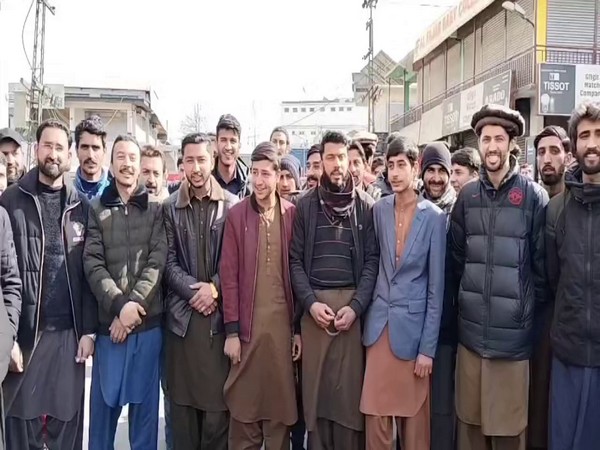Local traders in Gilgit city, situated in Pakistan-occupied Kashmir on Friday, took to the streets to voice their dissatisfaction with the increasing incidents of burglary and lawlessness. The protest, coinciding with the general elections in Pakistan, addressed security lapses and negligence by security agencies, contributing to a surge in unlawful activities.
“We demand justice from the security forces or the administration. If we are dutifully paying taxes, our lives and properties must be safeguarded. The persistence of such events raises serious questions.” said a prominent local businessman who requested anonymity.
Recounting a recent incident where his shop fell victim to a swift robbery, he said, “Six years of business, and in just 20 minutes, robbers ransacked my shop. Despite reaching out to defense agencies, the response was minimal, and no one in a significant position has addressed our concerns. This is not an isolated incident; we’ve faced at least a dozen such situations before.”
Another trader said despite repeated incidents, no official visited in 24-hour to assess losses or address their demands. The traders jointly demanded not only immediate security measures but also questioned the rationale behind paying protection money if it failed to ensure their safety. Frustrated by the lack of protection and compensation for losses, they chose to voice their concerns through a peaceful protest.
A shoe trader said that opting for private security might be a more viable option if the administration couldn’t guarantee adequate protection. He said the guards are way too old to carry out their duties and without proper equipment, it is a futile expenditure of time, money, and resources.
This protest occurs amidst an ongoing atmosphere of unrest in Gilgit-Baltistan. On Thursday, the Awami Action Committee (AAC), representing political, religious parties, and traders’ unions, had postponed a week-long sit-in after negotiations with the Pakistan government.
The AAC presented a comprehensive 15-point charter of demands, including the restoration of subsidized wheat prices, withdrawal of taxes, and land ownership rights for locals.
(Inputs from ANI)














